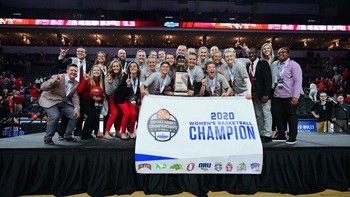USD receives NSF grant to increase participation of South Dakota American Indian tribes in computing
Thanks to a $511,336 grant from the National Science Foundation, Getting American Indians to Information Technology (GAIn-IT) is the focus of a three-year initiative by The University of South Dakota to increase American Indian knowledge and involvement through a dynamic academic program packed with computing opportunities – from pre-college to faculty development. South Dakota has the third highest percentage of American Indian population in the United States. However, several real barriers prevent American Indian students from pursuing computer science courses in college or occupations in the computing industry, primarily the lack of resources at home or in schools.
"We want to positively and productively impact the participation of American Indians in computing by developing community-based programs that make cultural connections to information technology," noted Asai Asaithambi, professor and chair of the computer science department at The U. "By providing increased access to culturally-relevant academic programming in computing in their communities so they don’t have to leave home, we want residents on the reservations to become more self-sufficient and become better prepared for occupations in information technology."
Asaithambi said the project will be introduced on the Rosebud Indian Reservation, home to Sinte Gleska University (SGU). Through a community-based summer camp, the program will provide opportunities for tribal families to use information technology on issues of cultural relevance to American Indians in South Dakota-Lakota language revitalization and land resource development. The camp will be used as a vehicle to recruit, mentor and prepare American Indian students to become interested in computing at the high school and college levels. The camp will feature the use of specialized software for the creation of storybooks in the Lakota language script and the exploration of land resources through maps and software provided by EROS.
"It’s a matter of providing a cultural perspective for computing on the reservation," explained Asaithambi, who pointed out that the program is for families, not just children. "The culture aspect is crucial as it empowers them, it touches their lives in many ways, and provides more meaningful connections to technology."
Additionally, the grant will provide a computing-major readiness program for SGU freshmen and sophomores; distance education and Web-based USD computing courses to aid SGU students in completing their undergraduate degrees in computing; a development program for SGU faculty members to obtain a master’s degree or a Ph.D. in computing at USD; and an opportunity for SGU students to enroll as computer science majors, including a combination of SGU and USD courses, and earn both a bachelor’s and master’s degrees in five years.
All camp instructors will include faculty from the USD computer science department, teaching assistants from The U as well as instructors from SGU. In addition to Asaithambi, professors from the USD computer science department involved with GAIn-IT include David Struckman-Johnson, Doug Goodman and Robert Wood. Following implementation on the Rosebud Indian Reservation, the Institute of American Indian Studies will assist GAIn-IT and its expansion to additional South Dakota Indian reservations over the course of the three-year project. The Institute of American Indian Studies, which is located on the USD campus, conducts research and policy development on tribal governance and issues in contemporary American Indian society.
"Our goal is to increase participation of the people of the tribes in computing so that they become more self-sufficient in the long run, while providing a larger base for the future information technology workforce for the entire United States," Asaithambi admitted.
While it’s not uncommon for the National Science Foundation to fund college or university computing camps, there were two things that made this proposal from USD, SGU and EROS competitive, according to Asaithambi. There’s a commitment from all parties involved to thoroughly educate rural families and individuals severely underrepresented in computing; and, even though it would’ve been easier for the computer science department to host these camps at USD, Asaithambi made it clear that wasn’t an easier solution for American Indians. That’s why USD is taking its resources to the reservations. "Rather than establishing a computer camp for our campus, we proposed the opposite," he added.
For more information about GAIn-IT or the National Science Foundation grant, please contact the computer science department at The University of South Dakota at (605) 677-5388 or by e-mail at [email protected].


